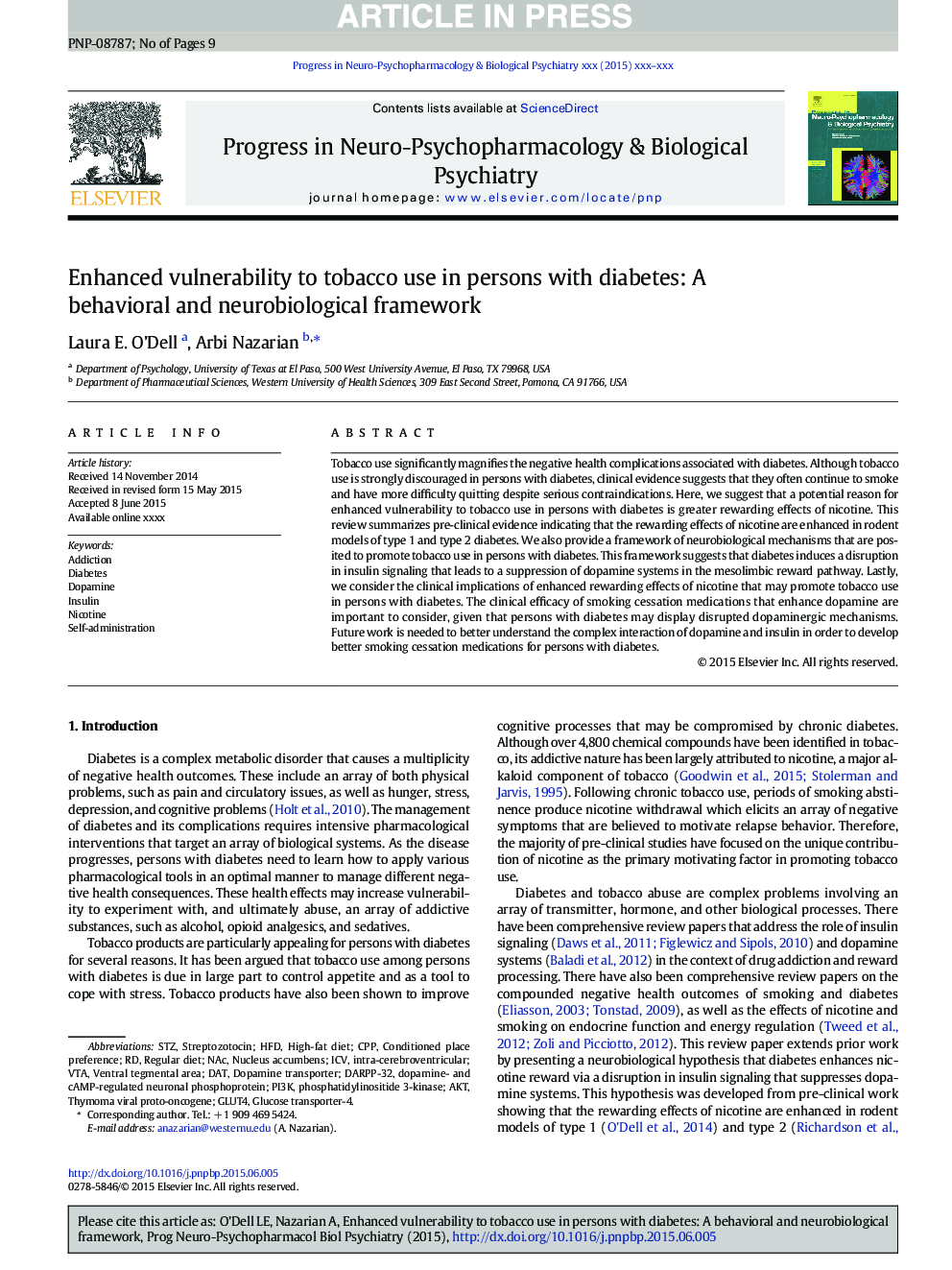| Article ID | Journal | Published Year | Pages | File Type |
|---|---|---|---|---|
| 5844236 | Progress in Neuro-Psychopharmacology and Biological Psychiatry | 2016 | 9 Pages |
Abstract
Tobacco use significantly magnifies the negative health complications associated with diabetes. Although tobacco use is strongly discouraged in persons with diabetes, clinical evidence suggests that they often continue to smoke and have more difficulty quitting despite serious contraindications. Here, we suggest that a potential reason for enhanced vulnerability to tobacco use in persons with diabetes is greater rewarding effects of nicotine. This review summarizes pre-clinical evidence indicating that the rewarding effects of nicotine are enhanced in rodent models of type 1 and type 2 diabetes. We also provide a framework of neurobiological mechanisms that are posited to promote tobacco use in persons with diabetes. This framework suggests that diabetes induces a disruption in insulin signaling that leads to a suppression of dopamine systems in the mesolimbic reward pathway. Lastly, we consider the clinical implications of enhanced rewarding effects of nicotine that may promote tobacco use in persons with diabetes. The clinical efficacy of smoking cessation medications that enhance dopamine are important to consider, given that persons with diabetes may display disrupted dopaminergic mechanisms. Future work is needed to better understand the complex interaction of dopamine and insulin in order to develop better smoking cessation medications for persons with diabetes.
Keywords
Related Topics
Life Sciences
Neuroscience
Biological Psychiatry
Authors
Laura E. O'Dell, Arbi Nazarian,
